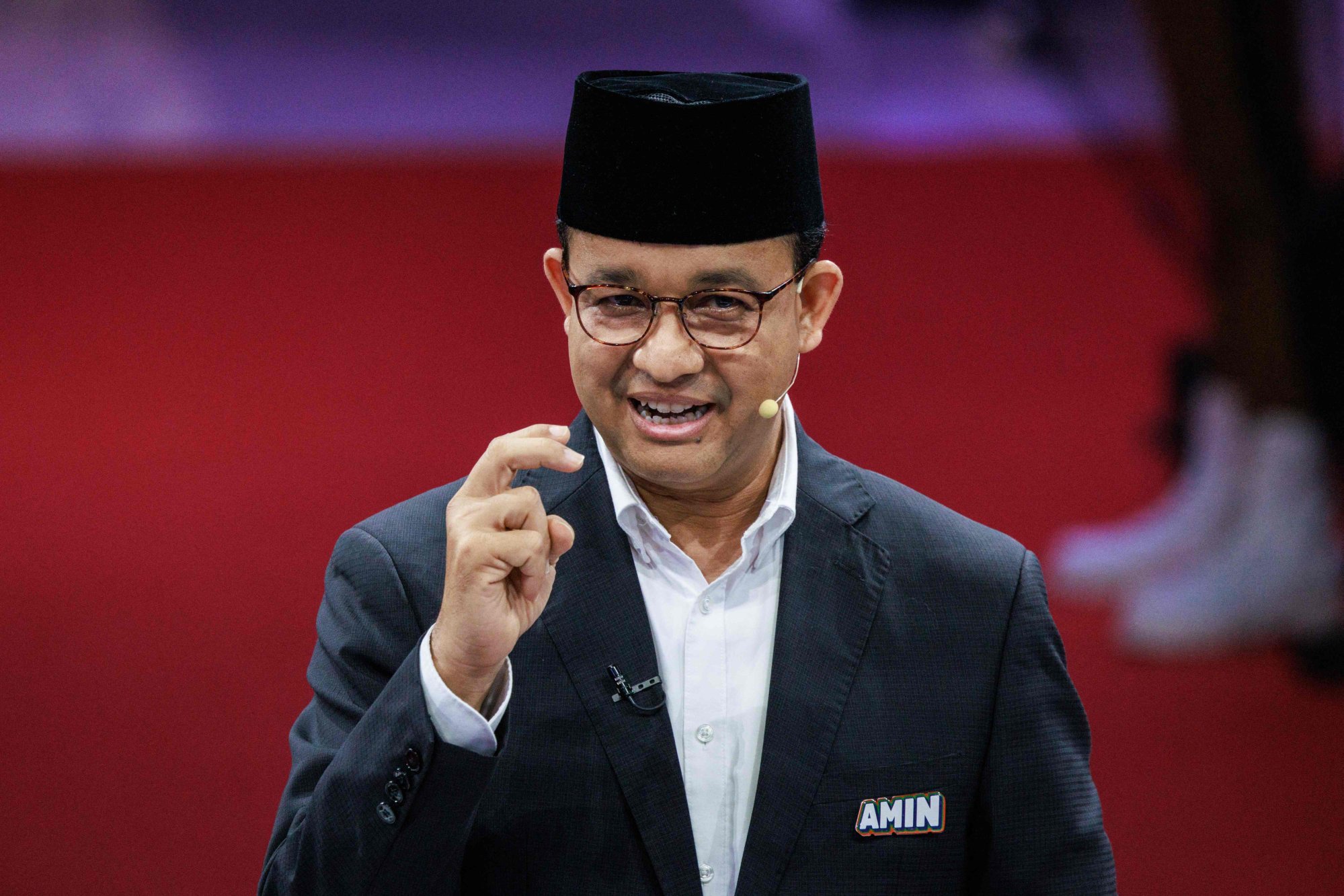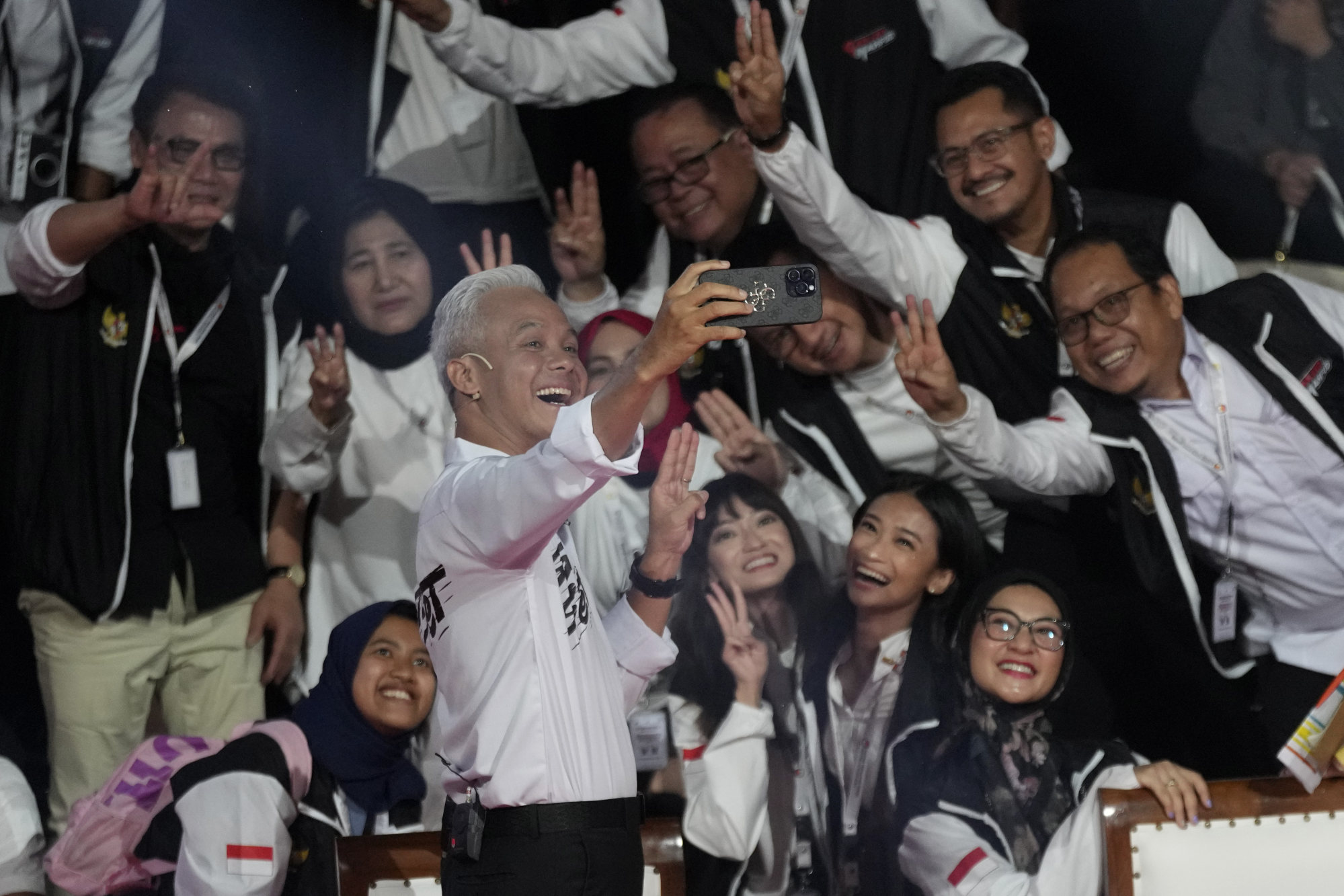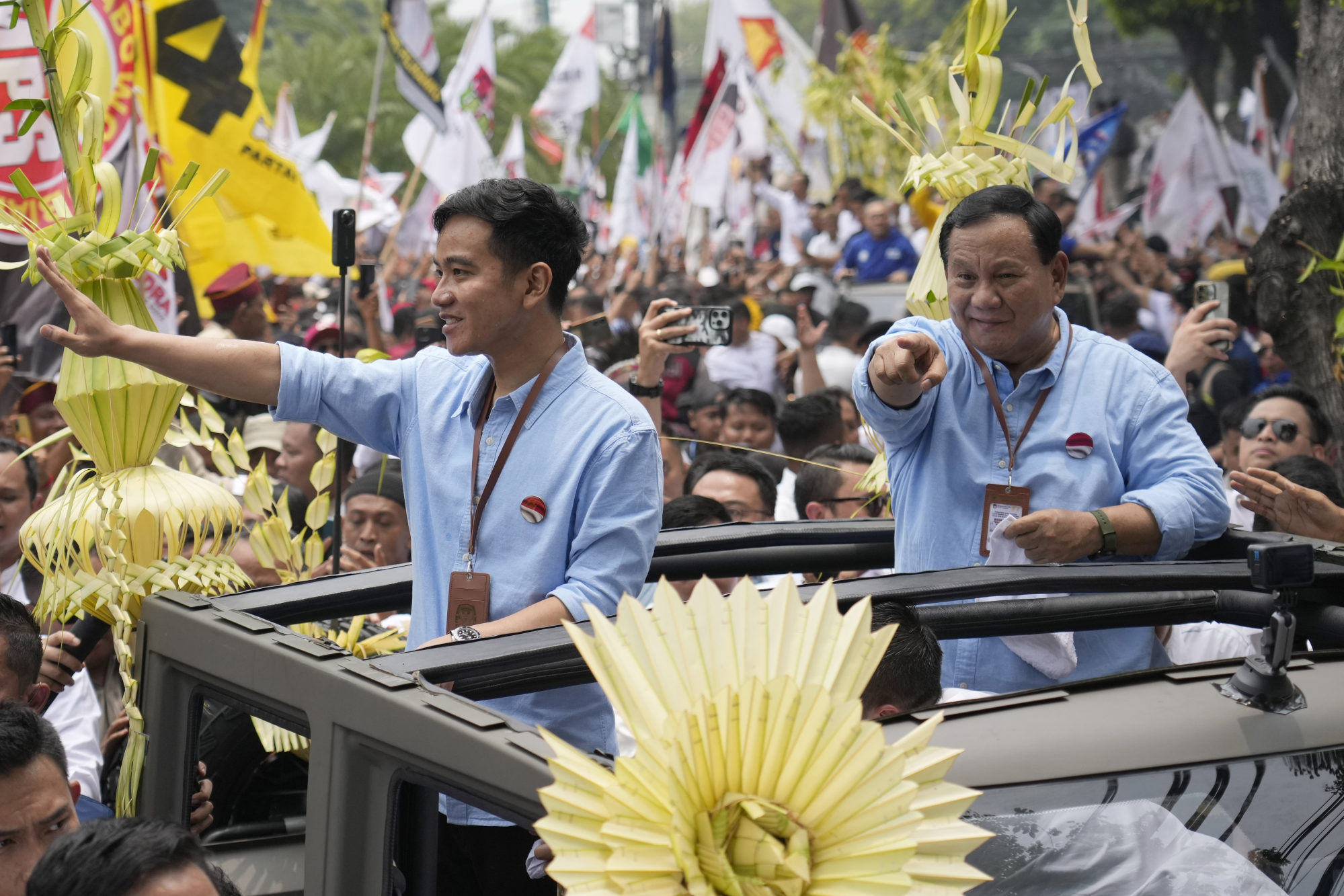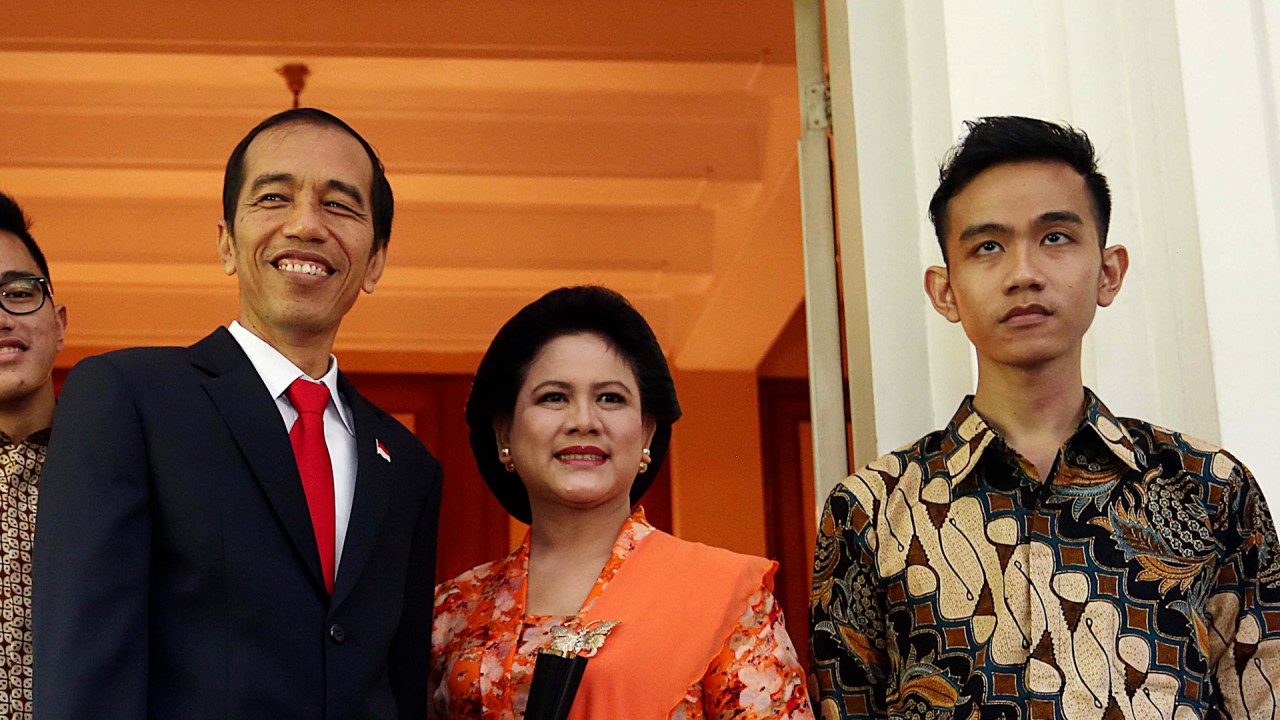Was first Indonesian presidential debate a game-changer as ‘articulate’ Anies outshines Prabowo?
[ad_1]
“Rhetorically, Anies was good, better than Ganjar and Prabowo, because he has a lecturer’s background. However, this rhetorical side must still be accompanied by a substantive side,” Ujang, an academic at the Al-Azhar University in Jakarta, said on Wednesday.
“Last night’s debate was still not substantive, the candidates did not comprehensively explain their programmes, such as how they would eradicate corruption and the legal mafia,” he added.

Firman Noor, a political researcher at the National Research and Innovation Agency, also praised Anies for being the only candidate who “could articulate his answers in a short time, and in relevant manners. He could even kick back some attacks, especially from Prabowo, which are also quite personal”.
“The worst performance was Prabowo’s, he needs to improve a lot in many aspects. He was not firm on the issue relating to human rights, he tends to agree with the statements of other candidates, and he also wastes time,” Firman said.
The candidates got into it straight away after a panellist asked Prabowo about the hot-button issue of Papua. The restive region is still beset by violence that Prabowo attributed to “separatism movement” and “foreign intervention”.
Indonesia’s Anies Baswedan targets Jokowi’s Nusantara plan in election strategy
Indonesia’s Anies Baswedan targets Jokowi’s Nusantara plan in election strategy
“We see that certain forces always want Indonesia to break up and disintegrate. The issue of human rights [in Papua] is something that we must prioritise, we also have to protect the entire people of Papua because terrorist groups attack the innocent Papuans,” said Prabowo, a former opposition leader-turned-Widodo loyalist.
If elected as president, Prabowo said he planned to strengthen the rule of law in Papua and boost the presence of security forces there, as well as to continue to develop the region, following the approach taken by Widodo’s administration.
Anies criticised Prabowo’s approach, saying that “lack of justice is the main problem in Papua”.
Prabowo countered by saying there were a number of factors contributing to the instability in Papua, “geopolitics, ideology … this is not an easy problem”.
I feel that I am the one who defends human rights very fiercely
That first encounter between Anies and Prabowo set the tone for the rest of Tuesday night’s debate, as they routinely seemed to be at each other’s throats.
In response to the panel’s question about how he would fix the public’s lack of trust in Indonesian political parties, Anies said that it was not the only problem causing democracy to backslide under Widodo’s leadership.
“Our democracy index is decreasing, there is no freedom of expression. Freedom of speech is being disturbed, and there is very little opposition nowadays,” Anies said.
Fears for Indonesia democracy as Jokowi’s son could run as VP after court ruling
Fears for Indonesia democracy as Jokowi’s son could run as VP after court ruling
The latest research by the Economist Intelligence Unit last year categorised Indonesia as a “flawed democracy” with a 6.71 rating, down from 7.03 in 2015. The research firm surveyed the quality of democracy in 165 countries and rated them from 0-10 scale, with a score below four meaning the country was authoritarian while an eight or above meant that a country was a full democracy.
Prabowo said Anies’ statement was “a bit of an exaggeration”.
“If our democracy doesn’t work, it’s impossible for you to become governor. If Jokowi is a dictator, you couldn’t possibly be governor, I was in the opposition at that time, you went to my house, I nominated you, then you were elected,” Prabowo said, referring to Widodo’s nickname, before doing a little dance.
“Prabowo couldn’t stand being in the opposition. What happened was – and he himself said this – that if he wasn’t in power he couldn’t do business,” Anies replied.
Ganjar responded to the debacle by saying that he “felt uncomfortable as my two friends here are opening an old book”.

Ganjar, who is backed by Indonesia’s ruling Democratic Party of Struggle (PDI-P), later asked a question of Prabowo that obliquely referred to accusations that he was involved in the kidnapping of pro-democracy activists and students during the country’s political crisis of 1998 while he was a special forces commander.
“If you were elected president, would you set up a human rights court? Would you help families to find the bodies of victims of forced disappearance?” Ganjar questioned.
Prabowo accused his rival of politicising human rights issues to gain votes.
“Every five years, when I gain traction in the polling, I am always asked this question,” he said. “I feel that I am the one who defends human rights very fiercely, in fact the people who were previously detained, the political prisoners who they say I kidnapped, are now on my side, defending me.”
Ganjar responded that Prabowo didn’t really answer the questions.
He’s in the groove. But can Indonesia’s Prabowo dance his way to the presidency?
He’s in the groove. But can Indonesia’s Prabowo dance his way to the presidency?
Dimas Bagus Arya, coordinator at the Commission for Disappearances and Victims of Violence, a non-governmental organisation, said Prabowo’s answers “ignores the fact that the case of enforced disappearance of people has not been resolved at the legal level”.
“There is no reality check carried out by Prabowo every election period. In fact, every year, the victims’ families faithfully demand the government fulfil its promises regarding resolving serious human rights violations in the past,” Dimas said.
Iftitah Sari, a researcher with the Jakarta-based Institute for Criminal Justice Reform, said the three candidates had yet to give comprehensive answers to some crucial issues involving Indonesia’s criminal justice system, such as police brutality, sexual and gender-based violence, and the overcrowding at prisons.
“Regarding police reform, it was not specifically mentioned; the candidates did not dare to go there. In general, our expectations are more than what we heard earlier in the debate,” she said.
The Gibran question
Candidates were allowed to ask each other questions during the debate, an opportunity seized upon by Anies and Ganjar, who both quizzed Prabowo about his decision to name Gibran Rakabuming, President Widodo’s 36-year-old son, as his running mate.

Prabowo shot back by telling his rivals, “my legal advisers say that this is all legitimate”.
“The decision is final and cannot be changed,” Prabowo said. “The point is that the people decide, the people judge, if the people don’t like Prabowo and Gibran, they don’t have to vote for us.”
Anies later condemned the normalisation of nepotism in the country.
“My respect goes to Anies and Ganjar for speaking with such manners, organised words, and timely pace. Very well-structured and calm,” X user @imchuckbassgf said.
Another user said that Prabowo was too busy defending himself to offer any policy ideas. “Prabowo takes every question personally, that’s why he never once gave a clear solution because he felt the need to defend his personal stance,” @_aisv said.
In jab at Jokowi, Indonesia’s presidential hopefuls vow pivot from China focus
In jab at Jokowi, Indonesia’s presidential hopefuls vow pivot from China focus
“There are still four more debates, so we have to wait and see if they can win voters, especially the 28.7 per cent of undecided voters,” Ujang of Al-Azhar University said.
[ad_2]
Source link


